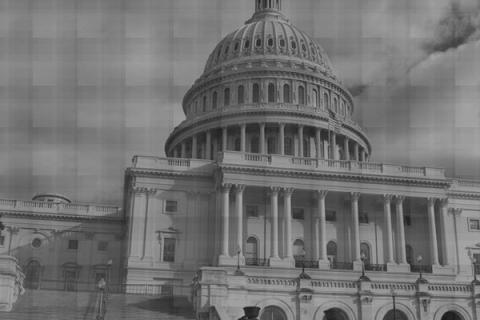An intriguing figure, Senator Marco Rubio has been the subject of speculation and the object of grassroots Republican affection for at least two years. Even though he had only previously served in the Florida state legislature, Rubio was immediately hailed as a national Tea Party icon.
But Rubio is not a harbinger of a new conservative future. He is a man of the past, a figure of the status quo, and his speech at last Thursday's Faith and Freedom Coalition Conference indicates that he is a new face for the old guard of the GOP.
Although very well received, Rubio's speech wasn't much more than typical campaign red meat for activists. Filled with statements about "blessings" from God, Rubio didn't do much to push the envelope. Such is par for the course, but the speech was also one of a determined, albeit confused ideologue.
Speaking about setting good examples, Rubio said:
"Those of us who look to our faith and particularly look to early Christian history to remind ourselves that Christianity spread not so much only because of the preaching but because of the way these people lived. Early Christians were subjected to extraordinary torture, extraordinary oppression. . . . And yet early Christians endured all of this with a sense of peace and of happiness that inspired those around them to inquire, 'Well, what is it about them that is so different? What's the source of this peace and the tranquility that they have in their lives?' . . . I say that only to remind us that it's the American example that has inspired the world as much as anything else."
At first glance, such a statement looks like a traditional understanding of "American Exceptionalism" and "A Shining City on a Hill," and seems to channel St. Francis' oft-cited axiom, "Preach the gospel at all times-- if necessary use words."
But Rubio seems hopelessly confused-- apparently equating America's secular political system with religious faith. Yet when he really gets down to it, Rubio isn't really advocating good examples. To get what Rubio is proposing means imposing those examples on others with force. The speech crescendos:
"For those of us who share the Christian faith we know the Parable of the Talents. . . . Today I want to talk about how it applies to us. Because just like the people are held accountable individually we'll also be held accountable in our role as Americans. All of us, at the end of our lives, our faith teaches, will be held accountable for what we did. . . ."[Did we uphold our blessings as Americans by] standing for the cause of liberty and freedom because we know that liberty and freedom is not just an American principle. It is a faith-based principle that applies to all mankind. What did you do? What did you do, America? Did you think this was just about enjoying your time and having the most fun that you could or did you realize that with your blessings came a special obligation to continue through your example to inspire the world . . ."And now we're asked to do what every generation before us has had to do: decide whether we'll use these blessings or take them for ourselves. Because we're not just blessed so we can have. We're blessed so we can give. And the greatest thing that we can give the world is the American example. The greatest thing that we can give the world is an America that is as great as she has ever been and even greater and there's no reason why that can't happen. The promise of this new century is real. . . ."Because what's truly at stake in 2012 and in the years to come is not just which party controls Washington or which leader lives in the White House. What's at stake is our very identity. There is no reason why the 21st century can't be an American Century as well for more people and more places than ever before. The only thing standing between a new American Century and today is our willingness to do what it takes to get there."
Not only does Rubio not understand the Parable of the Talents and think Americans will stand before a judge over their American righteousness, but his use of the word "example" is simply devious.
When he speaks of an "American Century" he is appropriating the language coined in Henry Luce's 1941 Life magazine article to describe how the United States was going to be the pre-eminent world power even before the U.S. entered World War II. And the "American Century" was one that included coups and aggressive wars to implant compliant pr0-American governments so there was very little that could be construed as "examples."
And by talking about an "American Century for more people and more places than ever before" he is also adopting the attitude of William McKinley to justify the Spanish-American War to "Christianize our little brown brothers." Marco Rubio may stand for a number of things, but a break with the past is not one of them.
To be fair, Rubio said more than can be discussed here, but the crux of Rubio's speech is that by virtue of her institutions, America has a divine right to rule over a world of six billion. Although he continually uses the word "example," Rubio is deceiving his audience and perhaps even himself because the vision he has and the model he wishes to follow is inseparable from an expansive foreign policy of aggression and force, not example.
And by encompassing his vision in a religious framework, he may be one of the most dangerous ideologues of all: one who believes his work is sanctioned by the Almighty.

